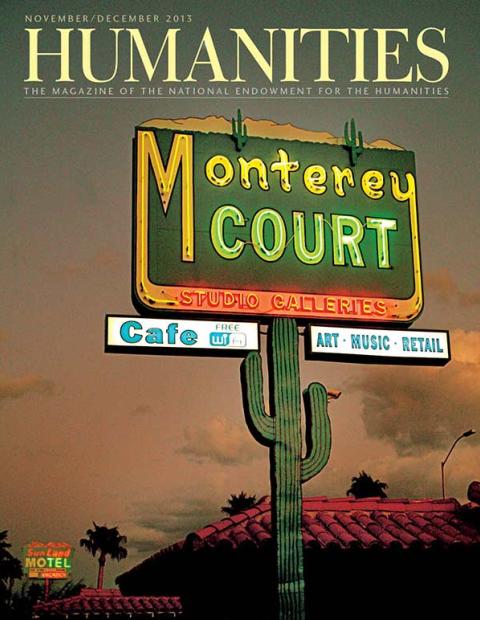Poetry in the Muslim world takes on many forms and touches upon myriad sentiments and sensibilities. Its roots lie in the epic and in romances, oral traditions that flourished in Persia and in the Ottoman and Mughal courts. Today, in Pakistan and India, truck drivers paint their entire rigs—cabs and trailers—with lines from favorite poems; in Turkey, dervishes whirl to the inspiration of Sufi poet Rumi; in Yemen tribesmen conduct negotiations in verse, and the Arabic calligraphy that sets lines on the page in many other Muslim countries is an art unto itself.
In Baghdad, the heart of the literary and intellectual community is a winding centuries-old alley lined with book stalls and named after one of the greatest Muslim poets, Al-Mutanabbi. Spiritual cousin perhaps of London’s Charing Cross Road, labyrinthine Al-Mutanabbi Street is quaint to say the least and somewhat at odds with the strict, classical rhyme scheme of the qasida, the form of which the street’s namesake is the acknowledged master.
Speaking of form, the ghazal is the Muslim poetic form best known among English speakers. It consists of couplets leading up to the poet’s signature—often a play on their name or a derivation of it. A poet known as Hafez wrote more than four hundred of them. In his hands, the form was “intense, passionate, ecstatic, often bearing multiple meanings,” according to the NEH-funded website Poetic Voices of the Muslim World. Hafez, the site hastens to add, “despised religious hypocrisy.”
In spite of the ghazal’s popularity among contemporary American poets, readers favor the work of Jalal Al-Din Rumi (1207–1273), the best-selling poet in the U.S., hands down. Spiritual and worldly at once, the verse finds joy in the every day. Greatly increasing Rumi’s popularity in English-language countries is the work of Coleman Barks, whose translations hit home with a contemporary idiom.




